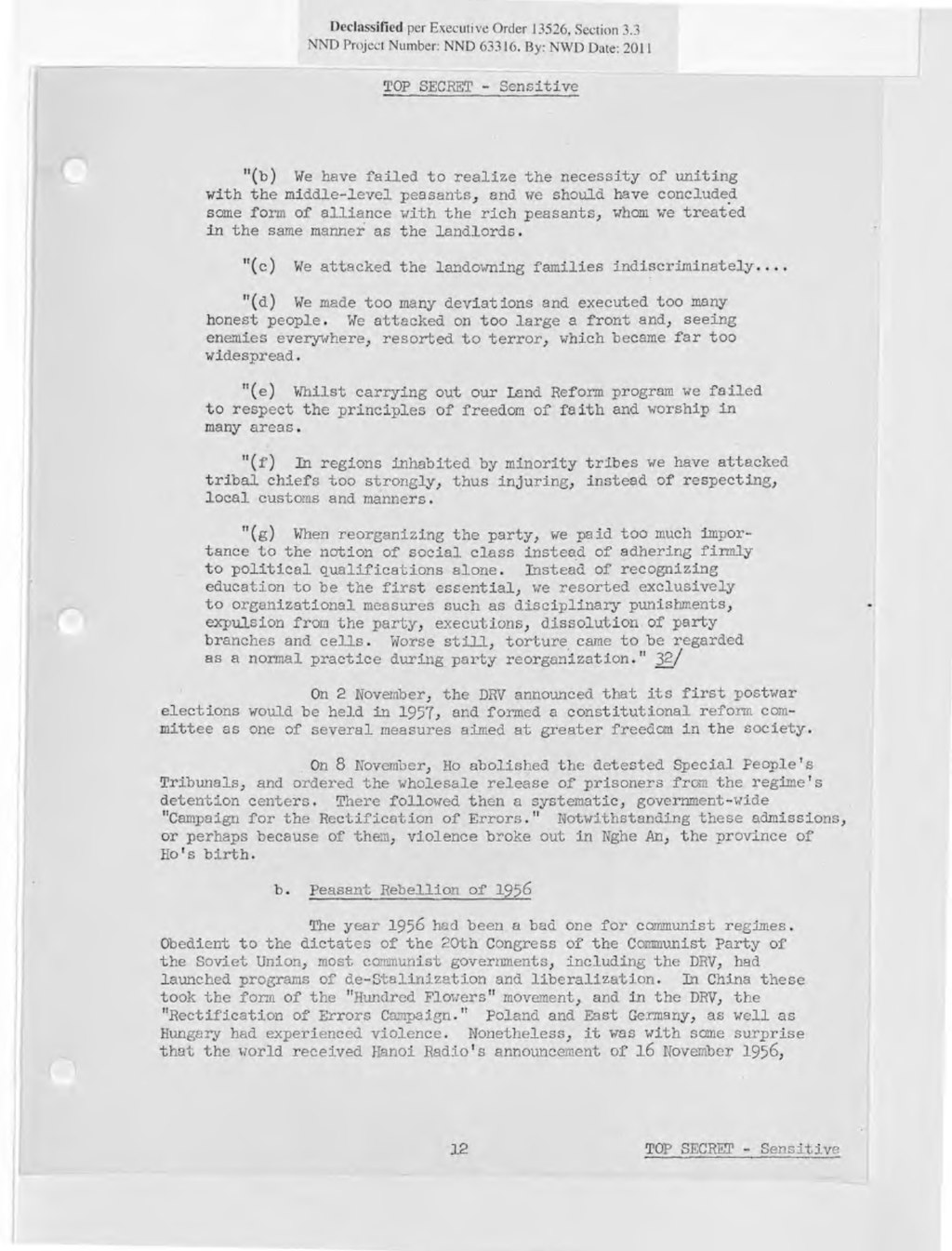Declassified per Executive Order 13526, Section 3.3
NND Project Number: NND 63316. By: NWD Date: 2011
TOP SECRET – Sensitive
"(b) We have failed to realize the necessity of uniting with the middle-level peasants, and we should have concluded some form of alliance with the rich peasants, whom we treated in the same manner as the landlords.
"(c) We attacked the landowning families indiscriminately....
"(d) We made too many deviations and executed too many honest people. We attacked on too large a front and, seeing enemies everywhere, resorted to terror, which became far too widespread.
"(e) Whilst carrying out our Land Reform program we failed to respect the principles of freedom of faith and worship in many areas.
"(f) In regions inhabited by minority tribes we have attacked tribal chiefs too strongly, thus injuring, instead of respecting, local customs and manners.
"(g) When reorganizing the party, we palace much importance to the notion of social class instead of adhering firmly to political qualifications alone. Instead of recognizing education to be the first essential, we resorted exclusively to organizational measures such as disciplinary punishments, expulsion from the party, executions , dissolution of party branches and cells. Worse still, torture. came to be regarded as a normal practice during party reorganization." 32/
On 2 November, the DRV announced that its first postwar elections would be held in 1957, and formed a constitutional reform committee as one of several measures aimed at greater freedom in the society. On 8 November, Ho abolished the detested Special People's Tribunals) and ordered the wholesale release of prisoners from the regime's detention centers. There followed then a systematic, government-wide "Campaign for the Rectification of Errors." Notwithstanding these admissions, or perhaps because of them, violence broke out in Nghe An, the province of Ho's birth.
b. Peasant Rebellion of 1956
The year 1956 had been a bad one for communist regimes. Obedient to the dictates of the 20th Congress of the Communist Party of
the Soviet Union, most communist governments, including the DRV, had launched programs of de-Stalinization and liberalization. In China these took the form of the "Hundred Flowers" movement, and in the DRV, the "Rectification of Errors Campaign." Poland and East Germany, as well as Hungary had experienced violence. Nonetheless, it was with some surprise that the world received Hanoi Radio's announcement of 16 November 1956,
